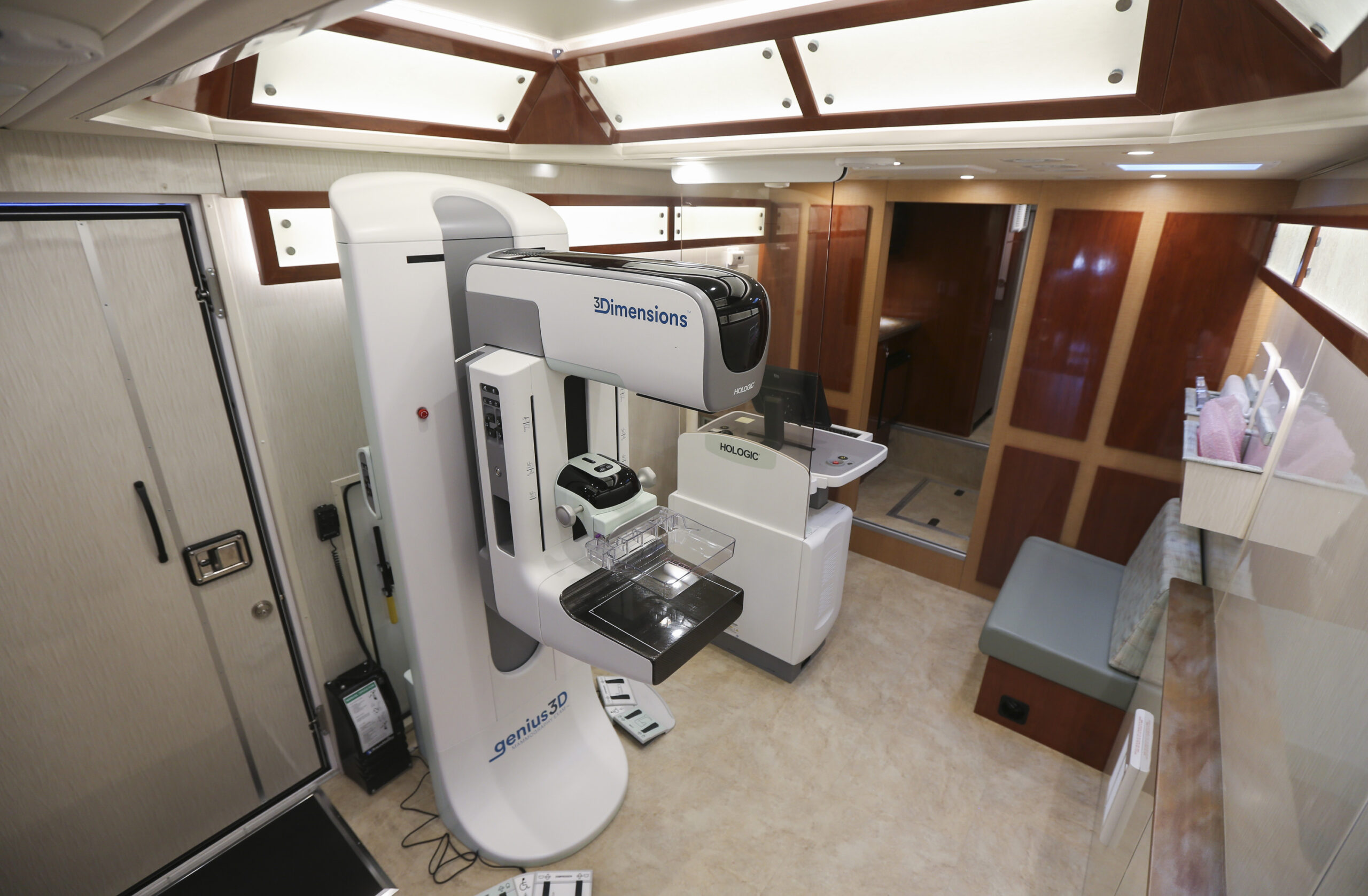Cancer screening timelines have a big influence based on family history
Jan 22, 2024, 2:00 PM

The mammogram screening room in the Huntsman Cancer Institute's new cancer screening bus is pictured during a preview event at the Urban Indian Center of Salt Lake in Salt Lake City on Monday, Aug. 19, 2019. The door on the left opens to a wheelchair lift, allowing accessibility to anyone in need of a screening. (Colter Peterson/Deseret News)
(Colter Peterson/Deseret News)
SALT LAKE CITY — The latest recommendations for cancer screenings say to get screened for breast cancer at 40 years old, and colon cancer at 45. But what other cancers should we screen for?
That all depends on our personal and family histories.
“We need our family members to speak up and share their medical history,” said Dr. Nathan Merriman, Medical Director of Gastroenterology and Digestive Health at Intermountain Health. “If there is a personal history of cancer that runs in the family, that impacts risk to other family members. We won’t know about that risk unless our patients talk to their family.”
Related: New research suggests breast cancer screenings should be done much earlier
So, for gastrointestinal cancer screening and prevention, the doctor recommends starting at age 45 unless there is a family history.
A family history of cancer means a different screening process
Merriman emphasizes that the general recommendations of when to screen for what kind of cancer can change drastically based on your family history.
“The general recommendation is if there is a first-degree relative who has colon cancer at a given age, then we start screening family members 10 years younger,” he said. “So, if someone is diagnosed with cancer at 25, then all their siblings and/or children would need to be screened starting at age 15.”
The doctor says the goal is what he calls informed shared decision-making. This is decision-making based on knowledge of family history and the best medical recommendations. Making wise decisions for you and your family depends on knowing your risk.
Related: Intermountain Health expands breast cancer appointments to Saturdays
“For example, stool-based testing for colon cancer when there is a strong family history of colon cancer is not informed decision-making,” said Merriman.
Other cancer screenings?
The American Cancer Society updated its screening guidelines a few months ago for lung cancer. If you smoke a pack a day for 20 years or more, and you’re between the ages of 50 and 80, you should get screened.
Women should be screened for cervical cancer once every three years from age 21-65.
The current recommendation for prostate cancer is that it is an “individual decision” on whether men should be screened between ages 55-69.
Personal genome
We hear a lot lately about our personal genomes. Have we reached the time when each of us can test our DNA to see what cancers we might be at greater risk for?
“We’re getting there,” Merriman said. “That is where we’re getting to in the next several years, and it is fantastic.”
The doctor hopes learning about individual genomes will help them catch some of the cancers that are being missed.
“What we have right now are many, many young patients being diagnosed with colon cancer in their 20s, 30s and early 40s that we’re not picking up on screening,” he explained. “There are pockets of increased risk that we don’t understand. I’m hoping the genetic information will help us.”













